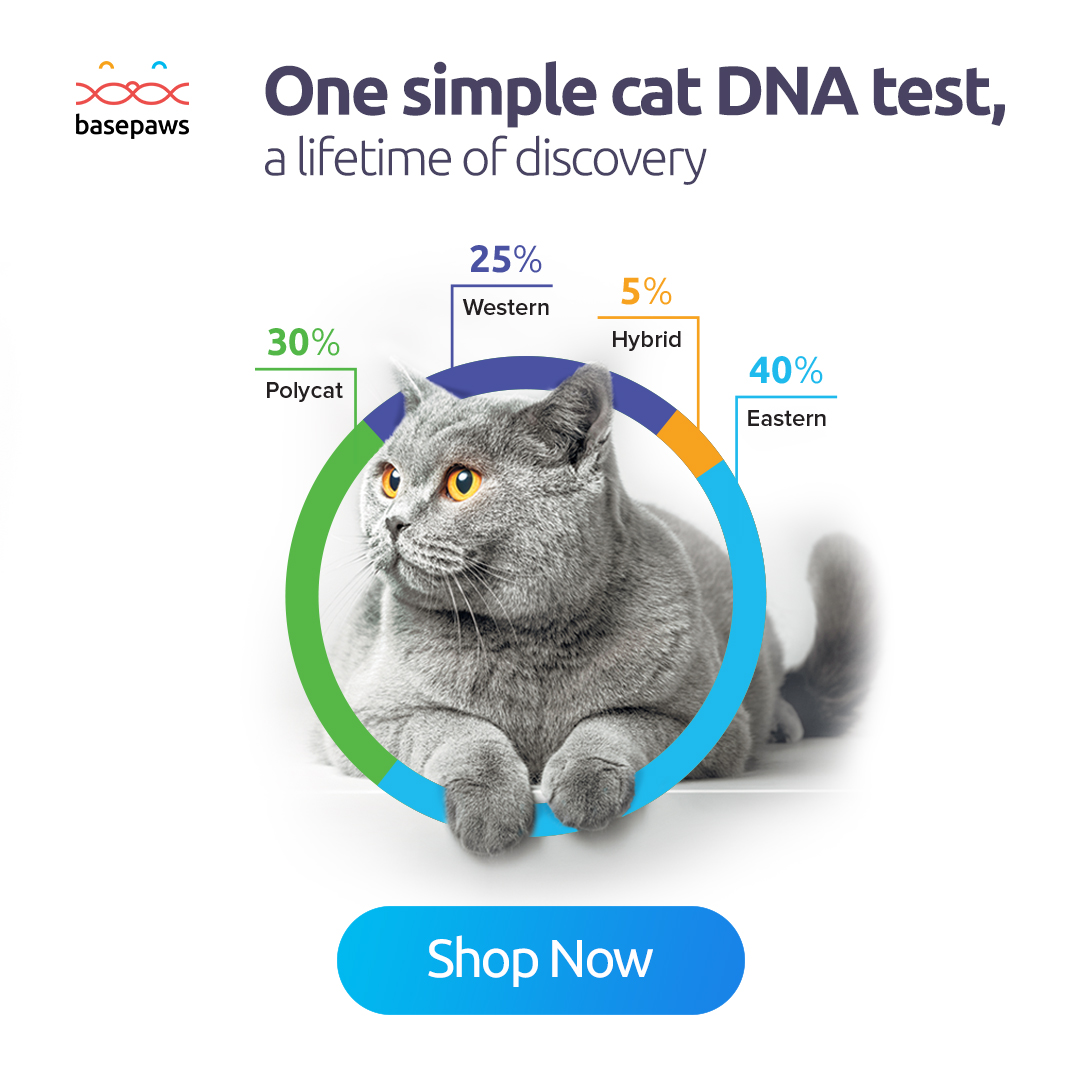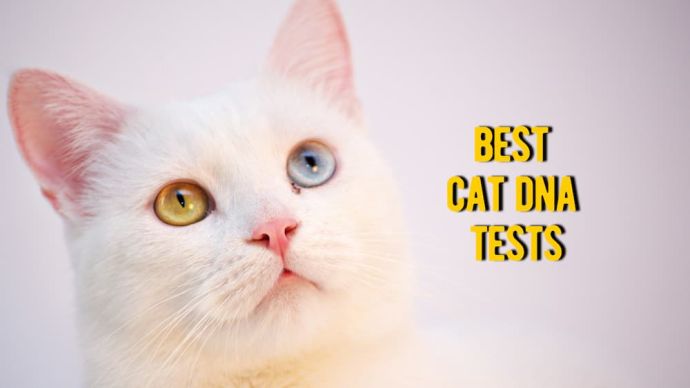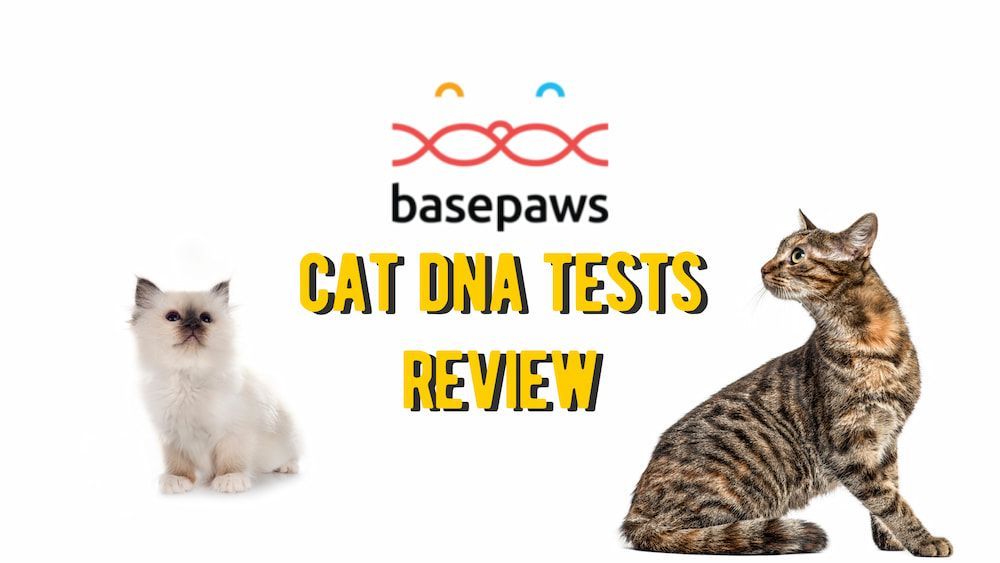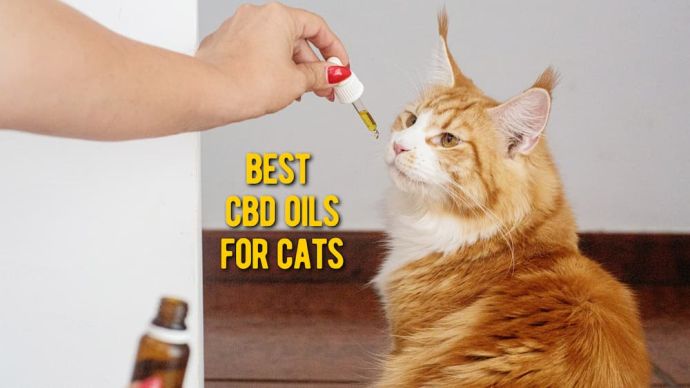Basepaws Cat DNA Tests Review: Does Basepaws Tests Worth Their Money?
Written by:
Author: Vicki Smirnova
Vicki Smirnova is a professional writer and editor who adores animals and helps readers get along well with their pets. She has been working in digital media for more than 5 years and has great experience writing content about lifestyle, including pets. Vicki specializes in dog health and nutrition, cat feeding, dog training. She is an aquarium lover and is passionate to write about fish care at home. Also, Vicki headed several websites and worked as a news editor.
View all 245 articlesLearn about our editorial process and veterinary review board.
Reviewed by:
Veterinary review
by Dr. Linda Simon
Dr. Linda Simon is a veterinary surgeon working with seven years of experience. She is a fellow of the British Veterinary Association and specializing in animal medicine. Also, she has been the Woman magazine resident vet for the past two years and writes a regular column for them, focusing on pets and their health.
View all 30 articlesLearn about our veterinary review board
Viewed: 79
Updated on: 12/20/2021
Basepaws Cat DNA Kit is the world’s first portable tool for analyzing the DNA of cats. The test will be useful for owners who want to learn as much as possible about the pedigree of their pet. With it, you can accurately determine which breeds are mixed in your pet. The test can also be a source of important information about the pet’s ideal weight and potential health problems. The kit includes detailed instructions and equipment for taking the pet’s fur and saliva samples. The collected samples should be sent to the laboratory of Base paws Inc. Within 8 to 12 weeks, the laboratory will send the results of the genetic analysis.
Analysis
Company history
Basepaws offers DNA tests for cats that determine their pedigree and give some information about their health. Basepaws was the first company founded which focused on allowing the public to learn more about their kitty’s DNA. Anna Skaya founded the company in 2016. This year, they received funding from two Shark Tank TV show investors.
The company is based in El Segundo, California, USA. A significant part of their business model is data collection and they intend to develop future products such as pet food manufacturing and pet health education services. The available tests analyze the cat’s DNA and more than 20,000 of its genetic variants.
Pricing
The cheapest is the dental health test, costing $79. This test determines the risk of developing general dental conditions, namely:
- Periodontitis (inflammation of the gums and teeth);
- Feline Oral Tooth resorption;
- Bad breath (Halitosis).
The test discusses your pet’s risk factors and provides detailed tips on caring for pets’ teeth at home. If your cat is likely to require professional dental care, Company specialists will inform you about this need.
Keep in mind, the test is not foolproof and is only a predictor of what may happen. If your cat has an oral injury or eats a poor quality diet, they are more likely to develop dental disease regardless of their results. Similarly, if you brush your pet’s teeth daily and feed them a prescription dental diet, you may avoid their ‘dental disease fate’.
The Breed + Health DNA test costs 129 US dollars in advance payment or 4 interest-free monthly payments of 32.25 US dollars. The test includes a comparison with all breeds and groups of breeds, a chromosome map, an index of wild cats, and determines your cat’s predisposition to genetic diseases and their markers of pet health. Thanks to the test, you can:
- 43 genetic conditions and 65 health markers;
- Groups and breeds are genetically similar to your pet;
- Evaluate 25 other genetic traits.
Sequencing the entire genome costs $499 in advance payment or 4 interest-free monthly payments of $124.75. Such a test provides 100% of the genome information, all genetic variants, and information about breeds and the predicted health status throughout the life of the cat.
The test performs complete genome sequencing. It includes everything that is in the Breed + Health Cat DNA test, as well as the following:
- Consultation with a trainer on the genetics of domestic pets;
- USB drive with detailed data;
- Exclusive access to the Basepaws community on Facebook.

Delivery, Shipping and International Availability
The company sends the kit from 24 to 48 hours from the order is placed. Delivery is carried out within 3-5 working days across the United States and about 10 working days to Canada. Please note that Canadian and other foreign customers must pay for the return shipping themselves. Customers from the USA enjoy free return shipping. International shipping costs about $15, excluding the cost of return shipping.
Guarantees and Refund Policy
To receive a monetary refund for an unused test kit, you must notify the company’s employees within 30 days from the date of ordering on the Basepaws website. The company will refund the remainder of the total purchase price after deducting shipping and handling costs. The test kit must be returned within 7 days.
Customer Service
The services of Basepaws are intended only for use for research, educational and informational purposes. The company does not provide professional medical advice.
Basepaws invites all owners of pets with a genotype to participate in the “Basepaws Study”. This service is not intended for use by clients for diagnostic purposes and does not replace professional medical advice from a veterinarian.
How to perform your Basepaws DNA test?
Basepaws sends your order to your home. When you get it, just do the following:
- Visit the website. Create an account and register your test.
- Use a complete swab to take a saliva sample. Just wipe the inside of the cat’s cheek with a swab.
- Send the saliva sample to company.
- 4-6 weeks after you can get the test results.
To properly take a saliva sample, you need to adhere to several rules:
- Do not take a saliva sample for 30 minutes after your cat has eaten or drunk anything.
- Keep the swab in your pet’s mouth for 5 to 10 seconds to absorb enough saliva.

What to Expect From Basepaws Test Results?
Basepaws provides the world’s first genetic test for domestic cats so you can learn more about your furry friend; from breed to health, personality traits, and more. The kit uses a simple saliva swab sample, which will not be difficult to obtain. The Basepaws test results take 6 to 9 weeks.
The test data is constantly expanding and currently includes 4 breed groups and 18 breeds to give you a better idea of your pet. You will also receive a health report that includes more than 39 genetic mutations that need to be monitored. It’s always good to know about possible health problems as early as possible, and Basepaws can help.
READ MORE: Best Cat DNA Tests
Review of Basepaws Analysis
– Wild Cat Index and Breed
The report from the Basepaws test provides information about the origin and pedigree of your pet and allows you to compare its genetic information with other well-known cat breeds. The test can divide your cat’s breed into such categories as American shorthair, Maine Coon, and others. The test also allows the owner to determine which type of wild cat their kitty may have descended from.
Types of testing:
The breed analysis test report contains information about which breed groups your cat most belongs:
- Western – such as the American Shorthair and Ragdoll.
- Exotic – such as the Savannah.
- Oriental – for example,the Burmese and Thai Siamese.
- Persian include British shorthair and Persian.
The chromosome map uses colors to indicate your cat’s DNA belonging to certain groups and subgroups. However, the test does not take into account a lot of information and does not report what genetic features they are associated with.
Cat breeds
This section explains which purebred cats’ DNA is similar to your cat’s DNA. It also shows the percentage of total DNA. The test provides a lot of information on each cat breed:
- Origin or where they came from;
- Physical characteristics (e.g. general weight, coat length and eye color);
- Possible health risks, chronic diseases;
- Character traits (for example, if they are more likely to be calm or hyperactive).
This will help you understand why your cat exhibits a certain behavior and to gain a better insight into the temperament associated with the breed. However, some information provided refers to other breeds that have nothing to do with your domestic cat.
The Wildcat index directs you to the top 4 wildcats that are closest to your pet’s DNA. Basepaw’s experts warn that these results do not mean that your cat is half wild. All known species of domestic cats have wild cats among their ancestors. The wildcat index simply shows which wildcat’s DNA is most contained in your cat’s DNA
READ MORE: Cat Breeds
Health Information
Knowing more about your cat’s DNA can tell you about their predisposition to certain genetic diseases. As many cats are mixed-breeds, they will contain the DNA of a number of pedigree cats. It can be interesting to see which pedigree they are more closely related to. This can help vets when determining why your cat is unwell, as we know certain breeds are more prone to specific health issue.
By analyzing your cat’s DNA and genetic markers, Basepaws is created a detailed and personalized health report. This information will help you and your veterinarian make more informed decisions about your pet’s health. However, it is worth saying that a report can only tell us so much. More important than any ‘genetic likelihood’ are the symptoms a cat is showing and the test results they vet has.
Types of testing:
The Cat Dental Health Test report includes brief information about your cat’s oral health. Company estimates the risk of diseases such as periodontal disease, tooth resorption, and bad breath in your cat.

Health markers. Basepaws checks your four-legged friend for 65 health markers. This section indicates whether your cat has genetic predispositions that may increase the risk of health problems. Bear in mind, even if a cat is very likely to develop a disease, it may never happen. For some owners, this can be a stress they would rather not have.
It also shows if your cat has genetic mutations that they can pass on to their future offspring. Below are some genetic diseases that Basepaws tests can identify:
- Erythrocyte pyruvate kinase deficiency;
- Cystinuria;
- Hypokalemic periodic paralysis (hypokalemia);
- Gangliosidosis;
- Retinal degeneration;
- Mucopolysaccharidosis;
- Autoimmune lymphoproliferative syndrome;
- Porphyria;
- Congenital myotonia;
- Type I vitamin D deficiency;
- Primary hyperoxaluria.
- and more
Remember: Health Markers is not a diagnostic report and not a diagnosis. It doesn’t tell you if the cat has these diseases. But it’s a great way to find out if your cat and her offspring have these health risks. To establish a diagnosis of the suspected disease, it is recommended to contact a qualified veterinarian. You can use the information from the test to prevent your pet’s health problems in the future.
Some breeders may use these reports to determine which of their cats to breed from. Going forward, this should help create a healthier feline population.
How Accurate is the Basepaws DNA Test?
The report is quite detailed and informative. However, the Basepaws test result does not tell you the exact breed of your pet. They will help you determine which breed groups the pet is associated with.
Medical tests indicate whether your pet has a higher chance of developing certain pet health problems. This information is useful, but it cannot diagnose the presence of the disease. A cat may be genetically predisposed to a disease but never develop it during their lifetime. Knowing about the genetic predisposition can be helpful, but can also cause unnecessary stress to owners.
Basepaws Products
Basepaw offers three services at different prices. We will discuss what you get from each level in the following sections. These services are briefly described below.
Basepaws Science
At-home consumer testing is becoming more affordable and widespread. Expanded access to this technology also means that companies have more opportunities to offer unique services. Basepaws uses genetic testing methods, in the same manner, other companies analyze human DNA.
The first step is to register an online kit for testing your cat’s DNA. Registration allows the lab to determine which sample belongs to your cat when they receive it in their lab. The next step is to collect a sample from your cat. A swab is smeared on to your cat’s cheek to collect saliva. After that you should be sent back a sample. The report should be ready in a number of weeks (4-6 weeks are advertised).
Basepaws Reports Overview
Customers can use their Basepaws login to access their account and the cat DNA report. The following sections describe the report sections in more detail.
– Breed reports
Cat owners know that all cats in the world are unique. Based on the genetic similarity of all cats, their traits can be divided into four main groups of breeds. These groups are: Oriental, Western, Persian, and Exotic. These groups are further divided into certain breeds, such as Burmese, Ragdoll, Himalayan, and Egyptian Mau.
It is unlikely that a domestic cat 100% falls into one of these categories. In general, most cats are a mix of all four.
The breed report contains a chromosome map. Cats have 38 chromosomes, including two sex chromosomes and 18 autosomal pairs of chromosomes. Basepaws note that similar regions of the genome do not necessarily indicate ancestry or origin but suggest that there may be a connection.

– Genetic health
Some diseases are associated with genetic mutations. Basepaws reports that your cat is healthy, at risk, or at high risk for each registered disease. They recommend that you consult a veterinarian if any of these disease markers are “At Risk” or “At High Risk.” An example of a Basepaws report for a common disease is shown below.
– Whole-genome sequencing
A minimal study of the entire cat genome does not clarify how this additional data can be used. Consumers will have to judge for themselves whether the promise of additional information is worth an additional $450 in the future.
FAQ
Is Basepaws real?
Basepaws is a genome testing company that analyses the DNA of cats for the presence of risks of chronic and other diseases. The test is sold at a reasonable price, and this product was featured on Shark Tank and written about in Forbes.
What does Basepaws test for?
As well as a breed and dental profile, there is a health screening test. With the help of these DNA tests, specific health markers associated with genetic and chronic diseases of cats are identified. These diseases can be caused by genetic mutations, and the test indicates whether any of these mutations are present in your pet’s DNA.
How long is Basepaw’s processing time?
Conducting the test and submitting the test report takes from four to six weeks.
Are cat DNA tests legit?
These tests do not diagnose diseases and do not prove that your cat will develop one of the diseases for which the test is carried out.

 Cat Products & Toys Reviews Pretty Litter Review: Pretty Litter Cat Litter Reviews
Cat Products & Toys Reviews Pretty Litter Review: Pretty Litter Cat Litter Reviews - 220
- 0
 Cat Products & Toys Reviews The Best Dust-Free Cat Litters (Vet Approved Review)
Cat Products & Toys Reviews The Best Dust-Free Cat Litters (Vet Approved Review) - 208
- 0
 Cat Products & Toys Reviews The Best Cat DNA Tests: Cat Genetic Testing (Review)
Cat Products & Toys Reviews The Best Cat DNA Tests: Cat Genetic Testing (Review) - 235
- 0
 Cat Products & Toys Reviews Kitty Poo Club Review: Litter Box & Bag Subscription Service Full Overview
Cat Products & Toys Reviews Kitty Poo Club Review: Litter Box & Bag Subscription Service Full Overview - 110
- 0
 Dog Products & Toys Reviews The 10 Best Brush for Australian Shepherd: Review and Buying Guide
Dog Products & Toys Reviews The 10 Best Brush for Australian Shepherd: Review and Buying Guide - 12904
- 0






















